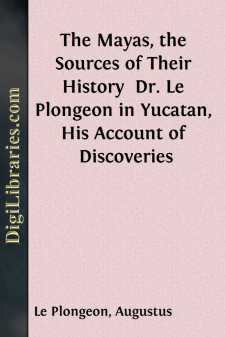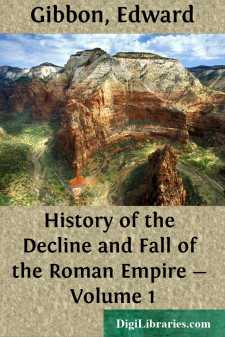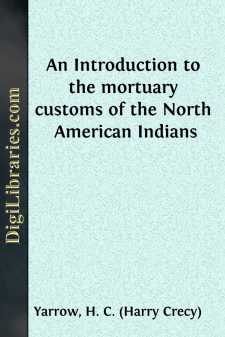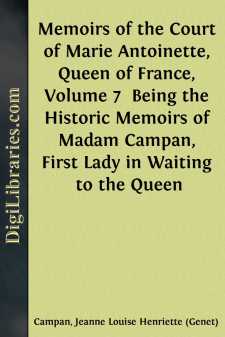History
- Africa 30
- Americas (North Central South West Indies) 50
- Ancient 68
- Asia 58
- Australia & New Zealand 8
- Canada 41
- Caribbean & West Indies 1
- Civilization 20
- Eastern Europe 12
- Europe 310
- Expeditions & Discoveries 60
- General 77
- Historical Geography 1
- Jewish 9
- Latin America 3
- Medieval 8
- Middle East 13
- Military 248
- Revolutionary 8
- Study & Teaching 5
- United States 353
- Western Europe 56
- World 13
History Books
Sort by:
by:
David Hume
The bishop of Valence, a prelate of the house of Savoy, and maternal uncle to the queen, was his chief minister, and employed every art to amass wealth for himself and his relations. Peter of Savoy, a brother of the same family, was invested in the honor of Richmond, and received the rich wardship of Earl Warrenne; Boniface of Savoy was promoted to the see of Canterbury: many young ladies were invited...
more...
The most comprehensive and accurate map of Yucatan is that which has been copied for this pamphlet. In the several volumes of travel, descriptive of Maya ruins, are to be found plans more or less complete, intended to illustrate special journeys, but they are only partial in their treatment of this interesting country. The Plano de Yucatan, herewith presented—the work of Sr. Dn. Santiago Nigra de San...
more...
A BRIEF SKETCHOF THELIFE AND CHARACTER OF DAVID WALKER. It is generally the desire of the reader of any intellectual production, to know something of the character and the life of the author. The character of David Walker is indicated in his writings. In regard to his life, but a few materials can be gathered; but what is known of him, furnishes proof to the opinion which the friends of man have...
more...
by:
Edward Gibbon
Preface By The Editor. The great work of Gibbon is indispensable to the student of history. The literature of Europe offers no substitute for "The Decline and Fall of the Roman Empire." It has obtained undisputed possession, as rightful occupant, of the vast period which it comprehends. However some subjects, which it embraces, may have undergone more complete investigation, on the general view...
more...
The mortuary customs of savage or barbaric people have a deep significance from the fact that in them are revealed much of the philosophy of the people by whom they are practiced. Early beliefs concerning the nature of human existence in life and after death and the relations of the living to the dead are recorded in these customs. The mystery concerning the future love for the departed who were loved...
more...
by:
Robert Black
CHAPTER XXIII.——THE HUNDRED YEARS' WAR—CHARLES VI. AND THE DUKES OF BURGUNDY. Sully, in his Memoirs, characterizes the reign of Charles VI. as "that reign so pregnant of sinister events, the grave of good laws and good morals in France." There is no exaggeration in these words; the sixteenth century with its St. Bartholomew and The League, the eighteenth with its reign of terror, and...
more...
by:
Charles Sturt
OBJECTS OF THE EXPEDITION. The expedition of which we have just detailed the proceedings was so far satisfactory in its results, that it not only set at rest the hypothesis of the existence of an internal shoal sea in southern Australia, and ascertained the actual termination of the rivers it had been directed to trace, but also added very largely to our knowledge of the country considerably to the...
more...
by:
Emma Helen Blair
Preface The first official report sent by Governor Francisco de Sande to the home government is dated June 7, 1576. It is introduced by a description of the winds prevalent in the Indian Archipelago. Arriving at Manila (August 25, 1575), he finds that much of the city has been destroyed by a Chinese pirate named Limahon; and he relates, in a graphic manner, the circumstances of this affair. In the...
more...
Of Ammianus Marcellinus, the writer of the following History, we know very little more than what can be collected from that portion of it which remains to us. From that source we learn that he was a native of Antioch, and a soldier; being one of the prefectores domestici—the body-guard of the emperor, into which none but men of noble birth were admitted. He was on the staff of Ursicinus, whom he...
more...
The Queen having been robbed of her purse as she was passing from the Tuileries to the Feuillans, requested my sister to lend her twenty-five louis. [On being interrogated the Queen declared that these five and twenty louis had been lent to her by my sister; this formed a pretence for arresting her and me, and led to her death.—MADAME CAMPAN.] I spent part of the day at the Feuillans, and her Majesty...
more...











